Welcome to BlogHub: the Best in Veteran and Emerging Classic Movie Blogs
You can rate and share your favorite classic movie posts here.
You can rate and share your favorite classic movie posts here.
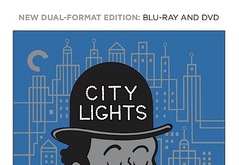
"City Lights"
Studies in Cinema Posted by Jeremy Carr on Dec 10, 2013
As they have with The Gold Rush, Modern Times, The Great Dictator, and Monsieur Verdoux,
The Criterion Collection has released another stunning Blu-ray/DVD
transfer of a Charlie Chaplin classic, rife with a surplus of features. City Lights
(1931), which Criterion itself calls, “the most che read more
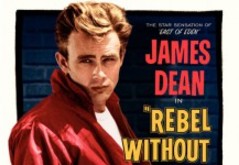
"Rebel Without A Cause"
Studies in Cinema Posted by Jeremy Carr on Dec 10, 2013
That Rebel Without a Cause
was such a success upon its initial 1955 release, and that it still
stands as a hugely influential classic of American cinema, is not just a
result of James Dean’s most iconic performance, nor is it simply the
outcome of director Nicholas Ray’s talents. Why read more
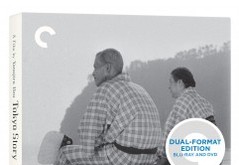
"Tokyo Story"
Studies in Cinema Posted by Jeremy Carr on Dec 10, 2013
December
12 marks 110 years since the birth of the great Japanese master
Yasujiro Ozu (and 50 years to the date since his death). So what better
way to commemorate the occasion than to revisit what is widely seen as
his masterpiece among masterpieces, Tokyo Story, out now on a
3-disc dual forma read more
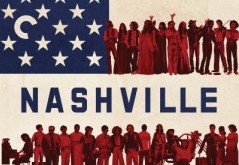
Robert Altman’s ‘Nashville’
Studies in Cinema Posted by Jeremy Carr on Dec 10, 2013
At the Cannes preview screening of Apocalypse Now in 1979, Francis Ford Coppola infamously declared, “Apocalypse Now is not about Vietnam; it is Vietnam.” Watching Robert Altman’s 1975 opus Nashville, perhaps the best film in a career full of exceptional work, one gets the feeling read more
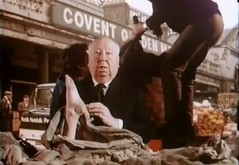
Late Hitchcock – ‘Frenzy’ and ‘Family Plot’
Studies in Cinema Posted by Jeremy Carr on Dec 10, 2013
There are some who opt for Alfred Hitchcock’s British years as his
finest, taking into account his earliest silent features through Jamaica Inn in 1939. On the other hand, many regard the peak years in America as the Master of Suspense’s finest era, with films from Rebecca in 1940 to Ma read more
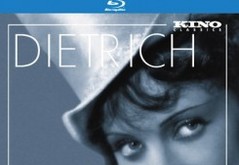
‘The Blue Angel’
Studies in Cinema Posted by Jeremy Carr on Dec 10, 2013
It’s strange that the work of Josef von Sternberg has not been better
represented in the realm of Blu-ray production. Aside from 1930’s The Blue Angel,
available now on a new Kino Classics 2-Disc Ultimate Edition, not a
single Sternberg film exists on the format. For such a stylish di read more
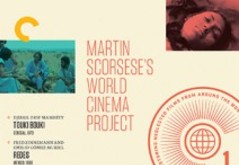
Martin Scorsese’s World Cinema Project, Part 1
Studies in Cinema Posted by Jeremy Carr on Dec 10, 2013
The Criterion Collection set assembling films rediscovered through
the efforts of Martin Scorsese’s World Cinema Project is one of the
company’s premier achievements. Bringing together six diverse titles
from six different regions of the globe, the collection is a treasure
trove for read more

"The Magnificent Ambersons"
Studies in Cinema Posted by Jeremy Carr on Nov 10, 2013
Every American film made since Citizen Kane
has, to a certain extent, lived in the shadow of this acclaimed
production. Widely and frequently heralded as the greatest film ever
made, Orson Welles' 1941 feature looms large in the annals of motion picture history. Now, imagine you are Welles himsel read more

The Anthony Mann/James Stewart Western
Studies in Cinema Posted by Jeremy Carr on Sep 10, 2013
The Western film has been around
since the very beginning of the movies. Some of the earliest short
vignettes in the 1890s were simple scenes indebted to Western culture,
iconography, and stories of the Wild West. With Edwin S. Porter’s The Great Train Robbery
in 1903, one of the first nar read more

"It"
Studies in Cinema Posted by Jeremy Carr on Jul 10, 2013
Just
what was, or still is, "it"? According to British novelist Elinor Glyn,
who coined the term, at least as far as it's referred to here, the
phenomenon can mean various things: "a strange magnetism that attracts
both sexes," for example. Well, whatever "it" is, Clara Bow had it, and that's wh read more

"Hondo"
Studies in Cinema Posted by Jeremy Carr on Jul 10, 2013
When John Wayne made Hondo in 1953, his masculine all-American tough guy persona was already well-established. Rumor has it that after a screening of Hondo
Wayne himself said, “I’ll be damned if I’m not the stuff men are made
of.” Presumably he was joking (he had a great se read more

"This Happy Breed" & "Brief Encounter"
Studies in Cinema Posted by Jeremy Carr on Jul 10, 2013
David Lean is probably best known for large-scale super productions like Bridge on the Rive Kwai (1957), Lawrence of Arabia (1962) and Doctor Zhivago (1965), and this is of course not without due reason; these, especially Lawrence,
are tremendous films. But when you look at Lean’s body of wor read more

"Scorpio Rising" & "Chelsea Girls"
Studies in Cinema Posted by Jeremy Carr on Jul 10, 2013
The
1960s were a time of drastic change in American film. Established
studios and their structures were breaking down, and with films like The Graduate, Bonnie and Clyde, Midnight Cowboy, Easy Rider and The Wild Bunch
(quite a time, wasn’t it?) the ratings system was faltering and both
the read more

Jean Renoir's "The Rules of the Game"
Studies in Cinema Posted by Jeremy Carr on May 10, 2013
The masterful Jean Renior, the great humanist of the cinema, created not only his masterpiece with La règle du jeu, but also one of the few films to rival Citizen Kane as the greatest movie ever made. This film is just astounding. Everything about it is pitch-perfect. While it certainly wasn’ read more

Greta Garbo in "Queen Christina"
Studies in Cinema Posted by Jeremy Carr on May 10, 2013
"What, when drunk, one sees in other women, one sees in Garbo sober."
So
said critic Kenneth Tynan in 1954. Not only is this one of the most
incisive quotes about movie star allure, it seems to truly capture the
essence that was and still is Greta Garbo.
T read more

"Journey to Italy"
Studies in Cinema Posted by Jeremy Carr on May 10, 2013
Roberto Rossellini had more than made a name for himself with the Neorealist trilogy of Rome, Open City (1945), Paisan (1946) and Germany Year Zero
(1948), all masterful works of post-war cinema, but his career began to
tak read more

"Notorious"
Studies in Cinema Posted by Jeremy Carr on May 10, 2013
In 1946, when Notorious
was released, Alfred Hitchcock and stars Cary Grant and Ingrid Bergman
were at the top of their game. Since his first American feature, Rebecca, in 1940, Hitchcock had in the past six years made Foreign Correspondent (1940), Suspicion (1941), Shadow of a Doubt (1943 read more

Sergei Eisenstein & "Battleship Potemkin"
Studies in Cinema Posted by Jeremy Carr on Mar 10, 2013
There is much that is fascinating about the life and work of Sergei M. Eisenstein.
While critics turning to directing is not unheard of—the “Cahiers du
cinema” writers of the French nouvelle vague, Paul Schrader and Peter
Bogdonovich here in America, British critics like Lindsay read more

Louise Brooks & "Pandora’s Box"
Studies in Cinema Posted by Jeremy Carr on Mar 10, 2013
There’s no doubt that G.W. Pabst was a more than competent director (his The Threepenny Opera is an exceptional film), but Pandora’s Box (1929), perhaps his most famous feature, begins and ends with the fantastic Louise Brooks. After the first time I saw read more

Akira Kurosawa’s "Ikiru"
Studies in Cinema Posted by Jeremy Carr on Mar 10, 2013
Akira Kurosawa’s 1952 film Ikiru
is the type of movie that can change a life, or at least change a
person’s way of looking at life. It is an extremely moving and very,
very good film. To me, it also stands as a superb example of the
emotional and inspirational power of cinema.
First read more

